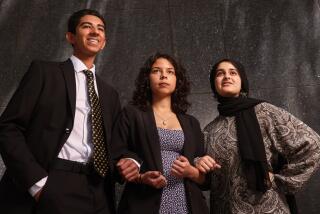Class Action Rejected in Smoking Case
- Share via
A state judge has declined to grant class-action status to a lawsuit against the tobacco industry that seeks more than $1 billion in restitution for 1.5 million California residents who began smoking as minors.
San Diego County Superior Court Judge Ronald Prager decided instead that the case can proceed as a private attorney general action against Philip Morris Cos., R.J. Reynolds Tobacco Holdings Inc., British American Tobacco’s Brown & Williamson subsidiary and Loews Corp.’s Lorillard Tobacco, among others.
“He’s essentially told us we could go forward and get all of the financial and injunctive relief we’re seeking, without obtaining class certification,” plaintiffs’ attorney Mark Chavez said.
The plaintiffs had sought class-action status, in part, because that would have given them the ability to reach other class members who could help them develop evidence against the companies, Chavez said.
Prager ruled, though, that the plaintiffs failed to establish that a class action would be “superior” to bringing the case as a private attorney general action, which is a suit brought by individuals on behalf of the general public.
“The relief sought by plaintiffs . . . is readily and fully potentially available” in a private attorney general suit, the judge ruled Tuesday.
While Chavez said Prager’s decision allows the suit to proceed to trial more quickly than a class action, a Brown & Williamson spokesman said the ruling is another indication that these types of lawsuits against the tobacco companies will not survive as class actions.
“The fact is court after court in most cases have come back and said smoking-related suits against tobacco companies are not appropriate for class actions,” Brown & Williamson spokesman Joe Helewicz said.
The 1998 lawsuit, filed by five California residents, accuses the tobacco industry of enticing them to experiment with smoking as minors through deceptive advertising, among other things.
The suit asks for restitution of more than $1 billion, including $700 million for alleged ill-gotten gains by the companies, on behalf of California residents, Chavez said.
No trial date has been set, Chavez said.
More to Read
Sign up for Essential California
The most important California stories and recommendations in your inbox every morning.
You may occasionally receive promotional content from the Los Angeles Times.











